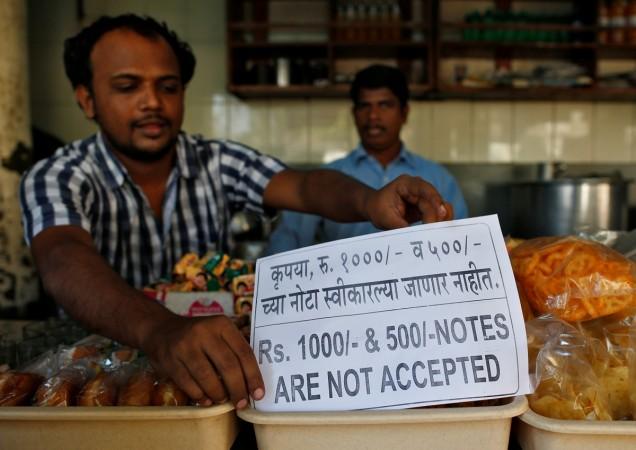
A 40-year old woman and an eight-year-old girl died in two separate incidents on Wednesday as the country was thrown into chaos after Prime Minister Narendra Modi announced the decision to scrap Rs 500 and Rs 1,000 notes with immediate effect (subject to certain places where they will be valid until November 11 midnight.)
Tirtharaji, a 40-year-old washerwoman, allegedly died of shock at Captainganj tehsil of Kushinagar district in Gorakhpur. It has been reported that pictures of two Rs 1,000 denomination notes and a pass book lying on the ground along with the woman's body went viral on social media.
Tirtharaji had saved Rs 2,000 and exchanged the change for the bigger denomination of two Rs 1,000 notes some time back. But on Wednesday she died of shock when she visited a bank (which was presumably closed).
"Officials from the revenue department have been asked to visit the house of the deceased woman. If it comes out to be a death due to shock then necessary action will be taken," Kushinagar district magistrate Shambhu Kumar told Hindustan Times.
In another incident, an 8-year-old girl died at Mahua Mafi village allegedly due to delay in treatment. The girl's father was unable to pay for petrol while rushing his daughter to the hospital as he was carrying a Rs 1000 note, which the pump station attendant refused to take.
Even though the government has allowed medicine shops (supported by prescription from a doctor), fuel stations, railway, bus and air ticket booking agencies to accept these notes for 72 hours, news reports suggest that people from around the country were inconvenienced as shopkeepers and retailers were rejecting Rs 500 and Rs 1,000 notes due to the shortage of other denominations.
PIL in SC seeking to quash the surgical strike on black money
On Wednesday, Supreme Court advocate Sangam Lal Pandey filed a writ petition seeking a judicial order quashing the government's decision to "immediately discontinue" the circulation of Rs. 500 and Rs. 1,000 currency.
Pandey who termed Modi's announcement a "Tughlaki Farman" (after medieval Indian ruler Mohammed bin Tughlaq who is known as the wisest fool in history for his eccentric decisions that boomeranged) in his petition has argued that the poor must be given a reasonable amount of time to organise their lives and added that "a large number of people are suffering."
Pandey claims that he has received information that suggests several private hospitals have refused to take payment in cash. This may delay "serious operations," he said according to the Hindu. He also said that thousands of weddings scheduled from November 9 to 11 might have to be cancelled.
The PIL has asked the apex court to instruct the government "to provide a stipulated time to citizens for making alternative arrangements for necessary activities, may it be medical, educational, weddings, farming, etc." The PIL may be listed for an early hearing during this week.








